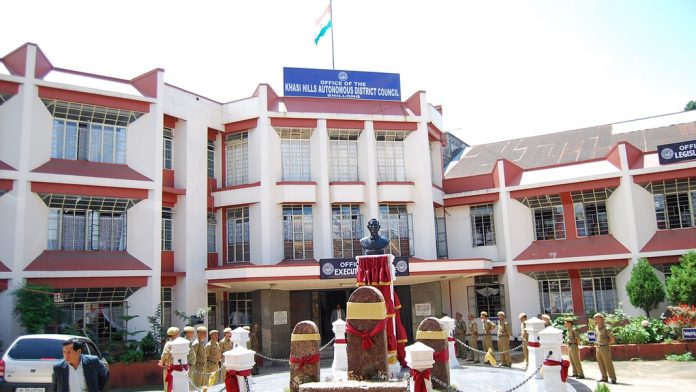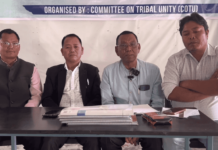Shillong, Oct 26: The Khasi Hills Autonomous District Council (KHADC) is going to table the contentious inheritance bill in the upcoming reassembled Autumn Session of the Council starting November 8 that looks to alter the age old practice of distribution of property among the Khasi Tribals in a major way.
The Khasi Hills Autonomous District Khasi Inheritance of Property Bill, 2021 is certain to have heated debate as it will have massive ramifications. The Bill seeks to give equal share of parents’ property to all of their children, both males and females.
As per the age-old Khasi tradition, the youngest daughter gets the full share of the parents’ property.
Also, a woman marrying outside the khasi community will lose her right to the property.
KHADC CEM Titosstarwell Chyne said, “The Bill seeks to codify and make provision for regulation and administration in the inheritance of property amongst the Khasi in consonance with the prevailing practice of the Khasi in Khasi Hills.”
Justification for Khasi Inheritance of Property Bill, 2021
These are the justifications provided by KHADC CEM Titosstarwell Chyne for the need of the inheritance Bill:
– As of now there is no law to regulate the inheritance of property in the indigenous society.
– There is no law to address issues concerning tribal parents who have only sons, parents without children or ‘Iapduh’ who do not have anyone.
– There are also instances of elder siblings filing cases against the youngest daughter over property issues.
Salient features of Khasi Inheritance of Property Bill, 2021
– Equal distribution of parents’ property among the siblings, both sons and daughters, instead of only the youngest daughter.
– Distribution of property depends on the will of the parents. They can decide whether their property is distributed equally among their children or given to only one child or any other arrangement they deem fit.
– The Bill hopes to address cases where children are going against their parents.
– A daughter marrying a foreigner or anyone from other communities will have no right to inherit her parents’ property.
– The Bill seeks to empower the Khasi men economically, instilling in them a sense of belonging.






